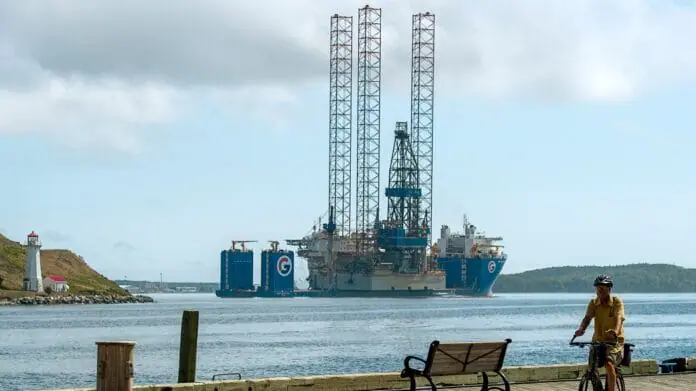Government officials vetoed a licence for oil and gas exploration off of Nova Scotia’s coast on Dec. 4, to the relief of environmental groups who cautioned against it.
In October, the Canada-Nova Scotia Offshore Petroleum Board approved a $1.5 million bid for a licence to perform oil and gas exploration in the Atlantic Ocean near Sable Island.
Nova Scotia’s Natural Resources Minister Tory Rushton and federal Natural Resources Minister Jonathan Wilkinson suspended the decision to issue the licence on Nov. 2 and released a joint statement vetoing it Monday.
“We both agree that this decision must also account for broader policy considerations,…which are beyond the scope of the board’s regulatory purview,” the statement said.
Wilkinson and Rushton’s offices did not respond to The Dalhousie Gazette’s repeated requests for comment.
Maggy Burns, the executive director of Ecology Action Centre applauded the decision.
“This is very welcome news,” said Burns. “The International Panel on Climate Change and other bodies have consistently called for a halt to all new oil and gas projects if we want to meet climate targets. Rejecting this bid is a concrete step toward that goal.”
Gretchen Fitzgerald is the national program director of the Sierra Club Foundation. The foundation is a member of the Offshore Alliance, a group of environmental organizations dedicated to stopping offshore exploration and drilling.
“We are alarmed that any new oil and gas exploration and production is being promoted and considered for approval in Canada in light of recent climate catastrophes that have resulted in deaths, dislocations and loss of homes,” Fitzgerald said. “The solution to climate change is to stop extracting and burning more fossil fuels.”
The Bid
The Canada-Nova Scotia Offshore Petroleum Board approved UK company Inceptio Limited’s bid of $1.5 million for the licence.
“The board can offer up areas for exploration, and if petroleum companies are interested they can bid on the ocean space, but approval is left up to the board,” Fitzgerald said.
The bid was one of the smallest in Nova Scotia offshore history and considered a low-ball by the Offshore Alliance.
The Canada-Nova Scotia Offshore Petroleum Board responded to an interview request with an email that stated, “The bid submitted exceeded the minimum bid amount, which was $1,000,000 CAD, and met the criteria set out in the terms and conditions of Call for Bids NS22-1.”
Marine Protected Area
The licence was for a parcel of ocean located 10 to 20 kilometres from Sable Island National Park and the Gully Marine Protected Area. The Gully is rich with marine life and is home to 16 species of whales and dolphins according to the World Wildlife Fund. The designation as a protected area prevents oil and gas development within its borders.
“Seismic blasting and oil drilling are very damaging activities,” Fitzgerald said. “It goes on for days, weeks and months at a time and changes how marine life experiences their habitat. Northern bottlenose whales live in the Gully. They’re endangered and it’s not acceptable to displace them by allowing blasting to go ahead nearby.”
Environmental groups are also concerned about the impact of oil and gas activity on Nova Scotia’s fishing industry.
“There’s a risk of displacing and contaminating marine life that fisheries are targeting. We saw that after the Gulf of Mexico spill,” said Fitzgerald. “The demand for the seafood affected by that spill went way down.”
John Davis is the founder of the Clean Ocean Action Committee and co-chair of the Offshore Alliance. His work centres on the renewable fishing industry.
“Those of us who understand that we should be working to protect and enhance the value of our fishery resource could not be happier with this decision,” said Davis.
Offshore wind development
The Offshore Alliance was worried offshore oil and gas exploration would prevent the government’s goal of developing wind farms in Nova Scotia’s waters.
Lisa Mitchell is the executive director of the East Coast Environmental Law Association, a member of the Offshore Alliance.
“Nova Scotia has made strong commitments to reduce greenhouse gas emissions and develop offshore wind. This bid was incompatible with those goals,” Mitchell said.
Rushton and Wilkinson’s joint statement confirmed the province’s need for offshore renewable energy was a factor in vetoing the licence.
“We’re so relieved this licence has been dropped and we can get on with urgently needed climate solutions such as offshore wind,” Fitzgerald said.


Recent Comments